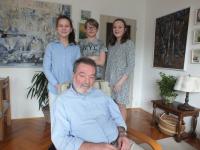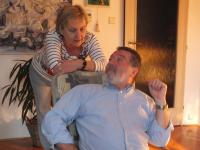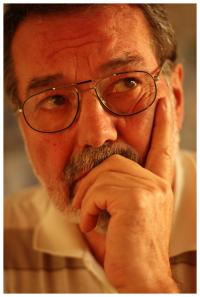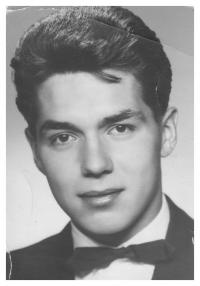To follow what is happening in the city, in the country, and in the world
Josef Zdražil was born on February 3, 1944 in Vukovar in the territory of former Yugoslavia. The war brought about very dramatic experiences for his family because the front passed through Vukovar several times, they were evacuated from their home three times, and their house was later destroyed. After World War Two, Yugoslavia was gradually turning into a communist state. Due to Josef’s father Czech roots, the Zdražil family decided to move to Czechoslovakia. They arrived to Czechoslovakia in 1947 and since 1949 they were living in Semily. After the communist coup d’état in Czechoslovakia, the family was regarded by the authorities as politically untrustworthy due to their origin, the reason being that Yugoslavia was in conflict with the Soviet Union. Josef Zdražil and his sister were not allowed to study the schools of their choice. Josef eventually completed a teaching college and he worked as a teacher in Lomnice nad Popelkou and later in Semily. Subsequently he worked in a children’s home as a tutor and later as its director. After the Velvet Revolution he also worked as a director of educational administration offices. Vukovar, the city whence Josef Zdražil comes from, was destroyed during the division of Yugoslavia in the 1990s.




